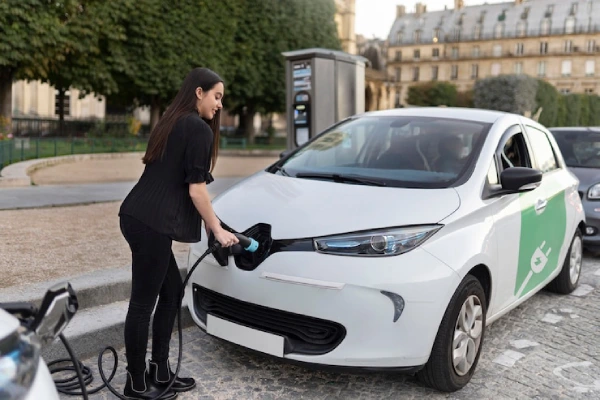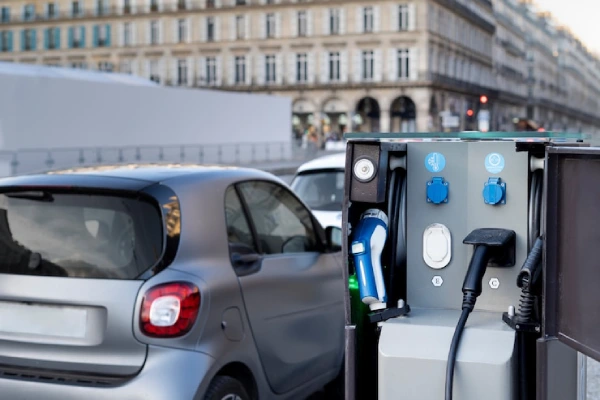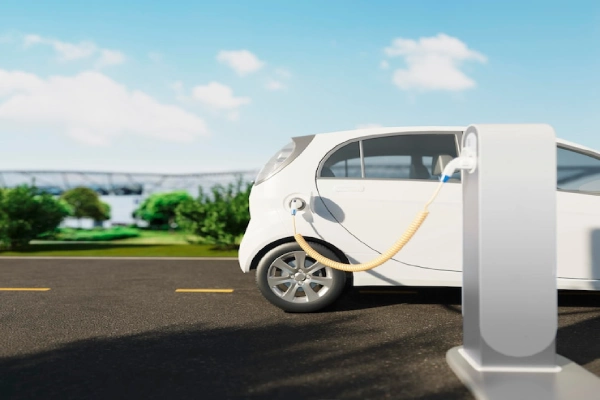-

-
-
Phone No. 9811893833
-
Address New Delhi 110045
-





Electric cars have been around for a while now, but misconceptions about them still linger. Despite their increasing popularity and technological advancements, there are many myths surrounding electric vehicles (EVs) that may deter potential buyers or cause unnecessary concerns. In this blog, we'll debunk some of the most common myths and misconceptions about electric cars to help you make an informed decision if you're considering switching to electric.
One of the most prevalent myths about electric cars is that they have a limited range and are only suitable for short distances. While it's true that early electric car models had limited ranges, modern EVs have made significant strides in this area. Today, many electric cars can travel over 200 miles on a single charge, with some high-end models even exceeding 300 miles. Additionally, the charging infrastructure is rapidly expanding, making it easier for EV owners to find charging stations along their routes.
Another misconception about electric cars is that they are slow and lack the power of traditional gasoline-powered vehicles. In reality, electric motors deliver instant torque, providing quick acceleration and responsive performance. Many electric cars can outperform their gas-powered counterparts in terms of acceleration and overall speed. For example, the Tesla Model S, one of the most popular electric cars on the market, can go from 0 to 60 mph in just a few seconds, rivaling some of the fastest sports cars.
Contrary to popular belief, electric cars are generally cheaper to maintain than traditional gas-powered vehicles. Since electric cars have fewer moving parts and don't require oil changes or exhaust system repairs, maintenance costs are significantly lower. Additionally, electric cars have regenerative braking systems that help extend the life of brake pads and reduce wear and tear on the vehicle's components. While the initial purchase price of an electric car may be higher than a comparable gasoline-powered car, the long-term savings on maintenance and fuel costs often offset the difference.

Some people believe that electric cars are not truly environmentally friendly because they still rely on electricity, which may be generated from fossil fuels. While it's true that the environmental impact of an electric car depends on how the electricity is generated, studies have shown that EVs are still cleaner than traditional vehicles, even when factoring in electricity generation from coal or natural gas. Furthermore, as renewable energy sources like solar and wind power become more widespread, the environmental benefits of electric cars will only continue to improve.
One of the concerns many people have about electric cars is the perceived inconvenience of charging them. However, charging an electric car is not as complicated or time-consuming as some may think. Most electric car owners charge their vehicles at home using a standard household outlet or a dedicated charging station. With overnight charging, you can start each day with a full battery, just like you would with a smartphone. Additionally, there is a growing network of public charging stations where you can top up your battery while on the go. With advancements in fast-charging technology, you can now recharge your electric car's battery to 80% capacity in as little as 30 minutes.

Safety is a top priority for automakers, and electric cars are subject to the same rigorous safety standards as traditional vehicles. In fact, many electric cars come equipped with advanced safety features, such as collision avoidance systems, adaptive cruise control, and lane-keeping assist. Additionally, electric cars have lower centers of gravity due to their heavy battery packs, which can improve stability and reduce the risk of rollover accidents. Overall, electric cars are designed to meet or exceed the safety standards set by regulatory agencies around the world.
Despite the misconceptions that still surround them, electric cars offer numerous benefits, including lower operating costs, reduced emissions, and a smooth, quiet driving experience. By debunking common myths and misconceptions about electric cars, we hope to encourage more people to consider making the switch to electric and contribute to a cleaner, more sustainable future. As technology continues to improve and the infrastructure for electric vehicles expands, the adoption of electric cars is only expected to grow, paving the way for a greener transportation system for generations to come.
Start by entering the total loan amount you require to purchase your dream car. This includes the vehicle's purchase price, taxes, and any additional fees or charges associated with the loan.
+91 9811893833
dreamCarfinance11@gmail.com
apply@dreamcarsfinance.com
query@dreamcarsfinance.com
servicerequest@dreamcarsfinance.com
New Delhi 110045
Copyright © 2023 Your contact details are protected with us and owned by Tact Wise Advisory. Designed By Seo To Webdesign